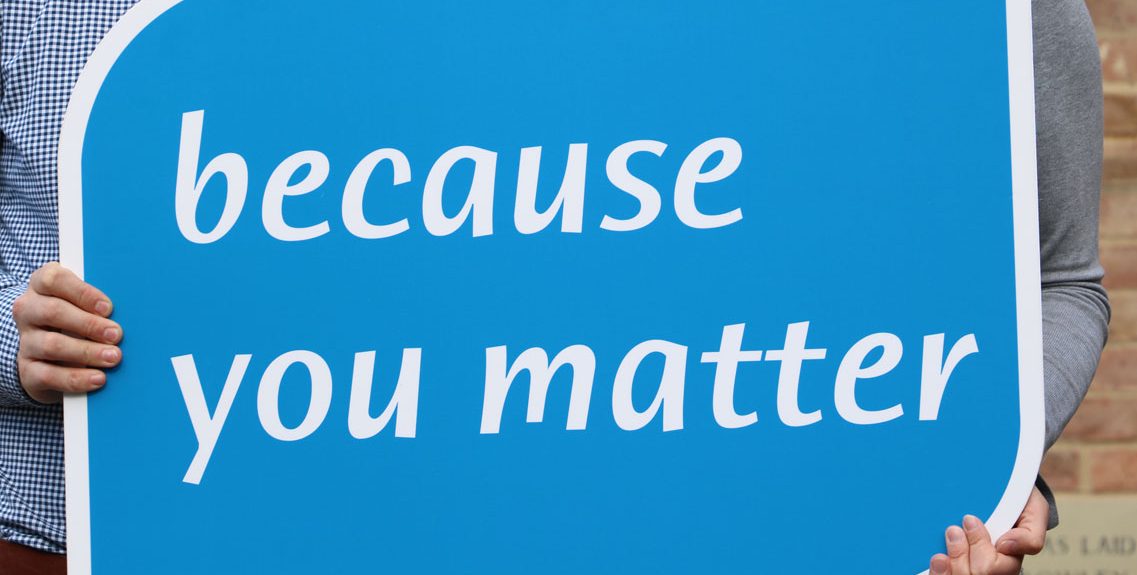Call our 24/7 advice line for health care professionals and families if you need support with symptom management and end of life care - 01284 766133.
Julie shares her experiences as an interviewer
During phase one of the Listen Learn Adapt process the Hospice’s people have been asking the community about their experience of end-of-life care, death, dying and bereavement.
These in-depth interviews provided many insights, revealing experiences, which the Hospice can find inspiration from to help shape its new model.
Julie Parker was one of our interviewers, she explains: “When I first heard about Listen Learn Adapt I had this feeling of ‘Here we go again’, but in finding out more, it was clear this was different.
“Firstly we were talking to the key people, people right in the centre of what we do here, whether they were patients, family members, bereaved or other key health care professionals/volunteers. More importantly I could be a part of this, hearing it first hand, rather than just reading about it, without any emotions that went alongside the discussions.
“Our first meeting with the Listen Learn Adapt Team was daunting, listening to how we could best interview individuals, listening to helpful techniques, but I left there feeling excited and raring to go.
“My first interview was in someone’s home. A lovely man and his wife who was his carer. Gene (Livework service designer) was taking the first interview to show us how to do it; boy did he make it look easy!
“I was note taker and became totally absorbed by what I was hearing, and had no idea of the time. For me it was so good to hear the background story of someone that may come onto the ward where I work. Too easily we have forgotten how they have got to that stage, and are totally unaware of what a hard journey they have been on to get here.
“I have always been aware, but I now know by listening to them, that their story can impact them hugely when admitted to the ward, and explains why relatives and patients can be so angry and frightened. I felt totally privileged that they shared their story with us. It was quite difficult at the beginning to ‘just’ listen on how hard it was for them to get a particular service, and the carer in me was already thinking ‘how can I help?’ but that wasn’t why I was there. I was there to listen.
“Prior to my first solo interview, I prepared myself by re-reading the questions, how I was going to say them and to try and think of every eventuality! To be honest I felt a little nervous, but again once we had starting talking the nerves dissolved.
“The four discussions I was involved in were so interesting, that eventually the questions weaved in and out of the conversation anyway. They were all so keen to be heard, the good and the bad.
“We have now started to sieve through all the discussions, trying to find similar themes in each, what seemed most important to the people we spoke with, and grouping theses themes for further discussions.
“I have found this a real positive and enjoyable experience and am happy that I have been involved in it. We have listened, we are learning, and then the hard job of working out how we can adapt to continual changing needs.
“Listening to these key people about their needs and opinions, has to be a better way for us to move forward rather than second guessing what people want/need.
“The main thing that has stuck with me from these conversations is dignity, treating people as individuals. Just saying hello and how are you? To family members have a huge impact – something so simple, yet so important.
“The word ‘hospice’ is such a cold word to everyone prior to knowing our services, yet they realise what a lovely place it is once they are here. I didn’t expect this to play on my mind so much, but it has. How can we change people’s perceptions? I have already put some thoughts together on paper, as I feel from this; the word ‘hospice’ could be a barrier to people using our services.
“I now look forward to the next stage.”

